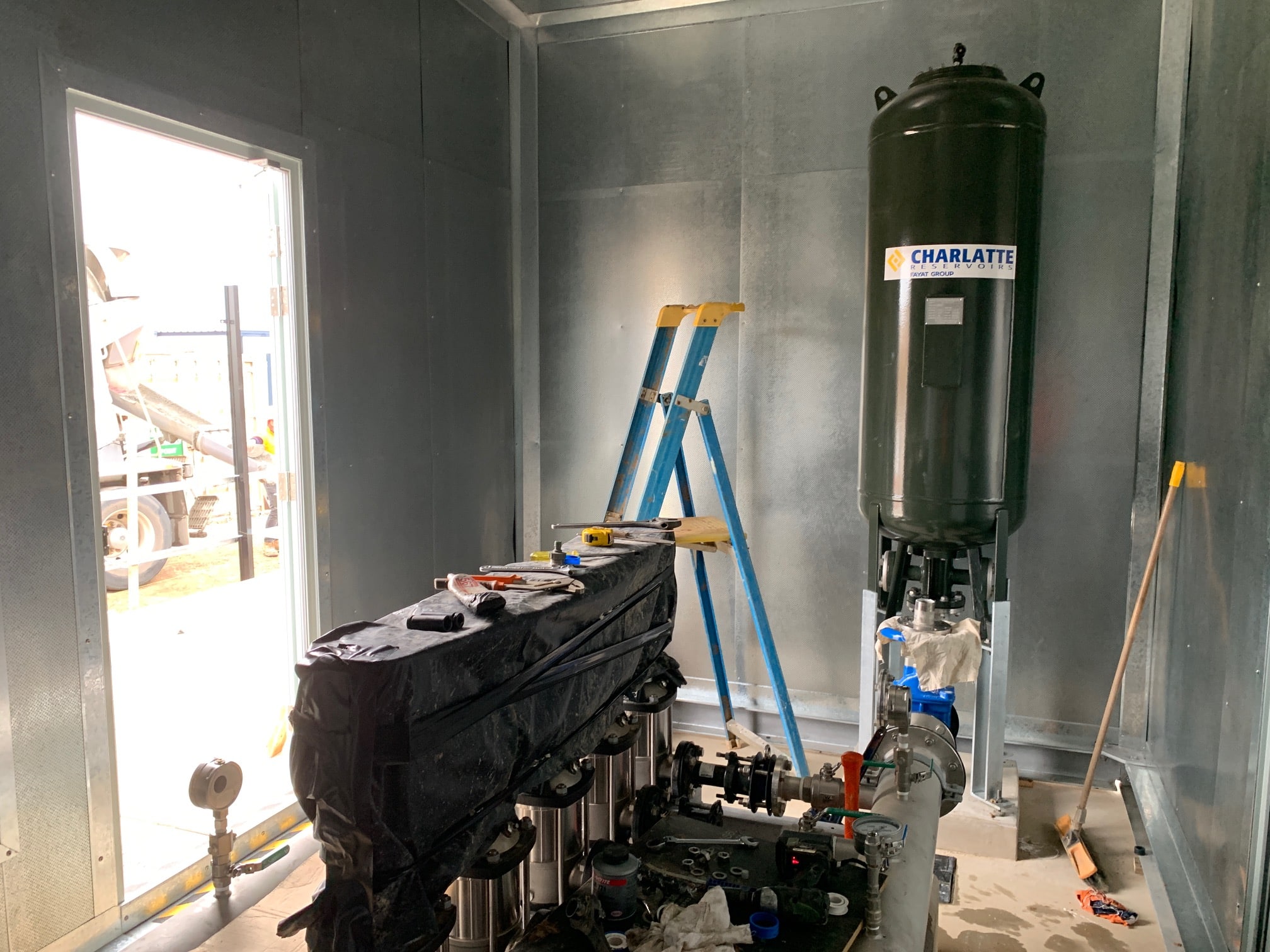Call 1300 799 969 | Contact Us


Home » Addressing noise pollution from industrial pumps
Industrial pumps serve as the unsung heroes of various sectors, silently powering processes that range from the mundane to the critical. These machines, operating on the principles of mechanical transformation, play a vital role in moving fluids across distances, making them indispensable in numerous applications.
Because of their design and means of operation, industrial pumps are noisy. In this article the Flexshield team will look at the types of industrial pump, and the best ways to quieten them.
An industrial pump is a mechanical device designed to convert mechanical energy from sources – such as electric or thermal motors – into hydraulic energy, facilitating the transfer of fluids from one point to another. Their versatility allows for the movement of various materials, including water, wastewater, chemicals, oil, sludges, and even food products.
Industrial pumps operate using a simple yet effective process. As the inlet tube of the pump draws in the fluid, a motor energised by coils and magnets generates a magnetic field, causing the impeller to rotate continuously. This rotation propels the fluid through the pump, transporting it to desired locations – even across different elevations.
Two primary types of pumps dominate the industrial landscape:
Centrifugal pumps: Known for their quiet operation (which is achieved thanks to minimal changes in direction), centrifugal pumps rely on a spinning fan-like mechanism to move fluids. Their noise levels correlate with workload intensity: as pump activity increases, so too does the noise of operation.
Positive displacement pumps: These pumps trap fluid and force it through the system. While effective, their operation tends to be noisier compared to centrifugal pumps.
Water pumps, a subset of industrial pumps, specifically cater to water transportation. Employing the principles of impulse turbines, water pumps convert potential energy from pressure into kinetic energy, enabling the transfer of water from lower elevations to storage areas.
Noise pollution from pump stations poses a significant concern, particularly in densely populated areas. Factors such as machinery operation and high-pressure systems contribute to elevated noise levels. Water treatment facilities, with their multitude of processing stations, exacerbate the issue, necessitating effective noise reduction strategies.
While a water treatment facility’s primarily concrete construction aids with structural integrity, it also exacerbates noise pollution. Concrete, while essential for stability, lacks acoustic absorption properties, leading to sound reflection rather than absorption.
Addressing this challenge requires innovative solutions, such as incorporating sound-absorbing materials into facility design or implementing noise-reducing technologies in pump systems.
Industrial pumps, including water pumps, serve as indispensable components in various sectors, facilitating fluid transportation with efficiency and reliability. However, their accompanying noise pollution poses challenges that demand attention and innovative solutions.
By understanding the mechanics of industrial pumps and implementing noise mitigation strategies, Flexshield can ensure smoother operations while minimising environmental impact and enhancing workers’ overall wellbeing.
For expert advice on quietening the noise of industrial pumps, please call Flexshield on 1300 799 969 or get in touch online.